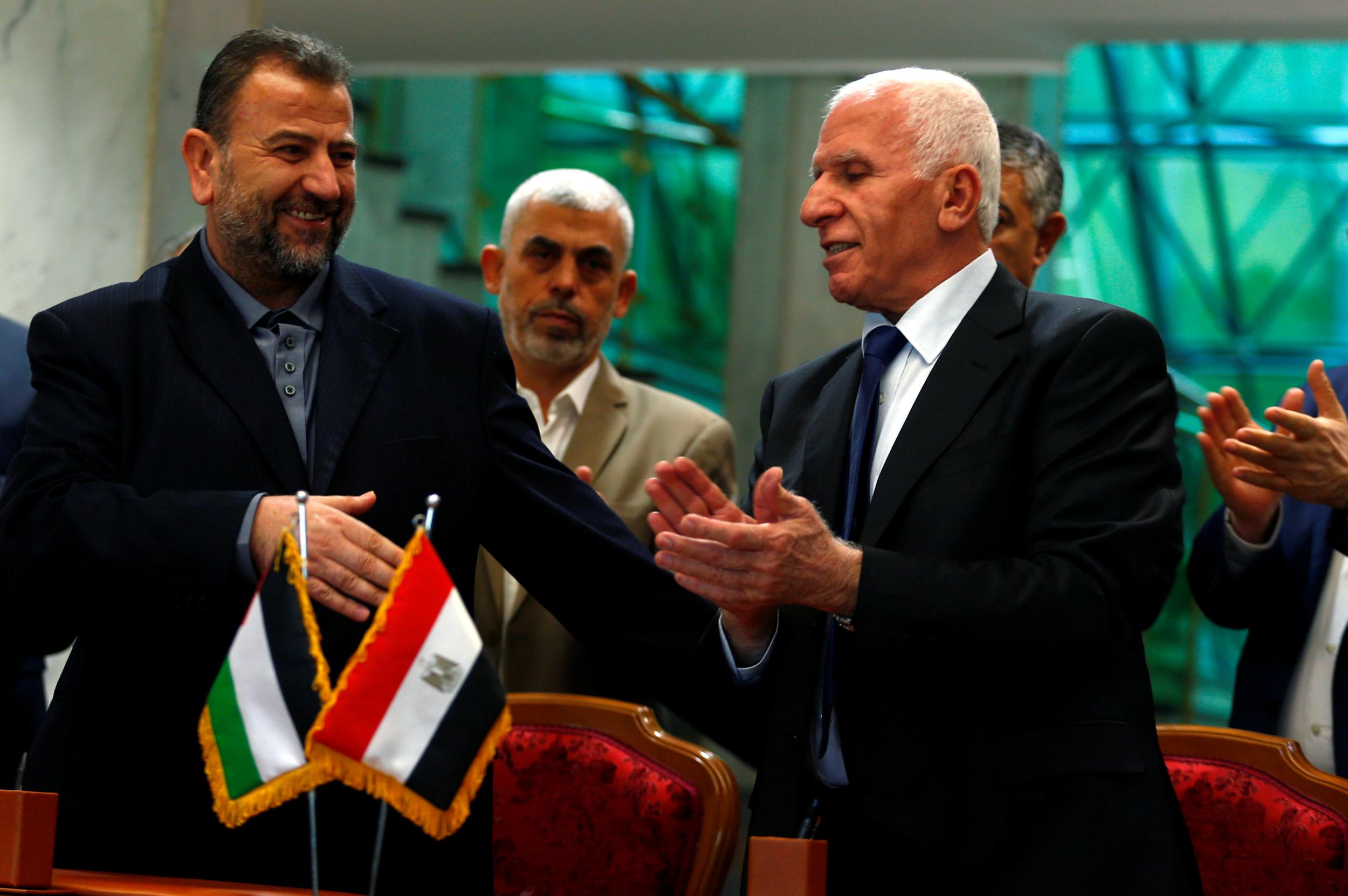Benjamin Netanyahu says Palestinian reconciliation deal 'makes peace harder'
Israeli prime minister's office dismisses breakthrough agreement between Fatah and Hamas until militant group in control of Gaza Strip recognises Israel and denounces use of violence

Israeli Prime Minister Benjamin Netanyahu has slammed a deal reached between rival Palestinian factions Fatah and Hamas to end a decade-long rift as "making peace much harder to achieve".
Negotiators for the West Bank's Fatah and militant Hamas, which controls the Gaza Strip, signed a preliminary agreement in Cairo on Thursday, a step hailed as the biggest step forward in intra-Palestinian relations in years.
The deal, reached after two days of Egyptian-brokered negotiations, should ensure a unity government will once again administer both the West Bank and Gaza after the rift caused by militant group Hamas’s takeover of the Gaza Strip in 2007.

While it covers border crossing arrangements and the livelihoods of thousands of public servants, it is understood some key issues - including Hamas’ arsenal - are not addressed.
Opening the Rafah border with Egypt would significantly ease Gaza’s humanitarian crisis, allowing freedom of trade and movement for the coastal enclave's 1.8 million residents. Both sides agreed to European Union monitors at the crossing point in an attempt assuage Israeli fears over weapons smuggling.
Israel’s initial reaction to the news from Cairo was cautious. Any deal must comply with “international agreements” including recognising the state of Israel and disarming Hamas, a government statement said.
Mr Netanyahu's office, however, followed up on Twitter with comments reiterating its opposition to working with the Sunni militant organisation in its current form.
"There is nothing Israel wants more than peace with all our neighbours. Reconciliation between Fatah and Hamas makes peace much harder to achieve," said a statement posted by Ofir Gendelmen, the prime minister's Arab media spokesperson.
"Reconciling with mass-murderers is part of the problem, not part of the solution. Say yes to peace and no to joining hands with Hamas."
Hamas has slowly rebranding itself as a more moderate and pragmatist organisation in an effort to force the Fatah-led Palestinian Authority into reconciliation talks: earlier this year it unveiled an updated founding charter which accepted the borders of a Palestinian state within the pre-1967 boundaries for the first time.
The announced changes did little to convince Israeli officials that Hamas’s stance has changed. At the time, Mr Netanyahu's office said the group was just “attempting to fool the world” it had changed its terrorist stripes.
All previous Fatah-Hamas attempts to reconcile have quickly broken down.
The deal comes a month after Hamas dissolved the committee which runs the Gaza Strip and said it was willing to work towards a reconciliation with its West Bank rivals.
The two Palestinian Territories have been ruled separately since Hamas won local elections in the Strip in 2006. A year of tense unity government administration ended after fighting in 2007 which led to Hamas expelling Fatah from the coastal enclave altogether.
Join our commenting forum
Join thought-provoking conversations, follow other Independent readers and see their replies
Comments
Bookmark popover
Removed from bookmarks